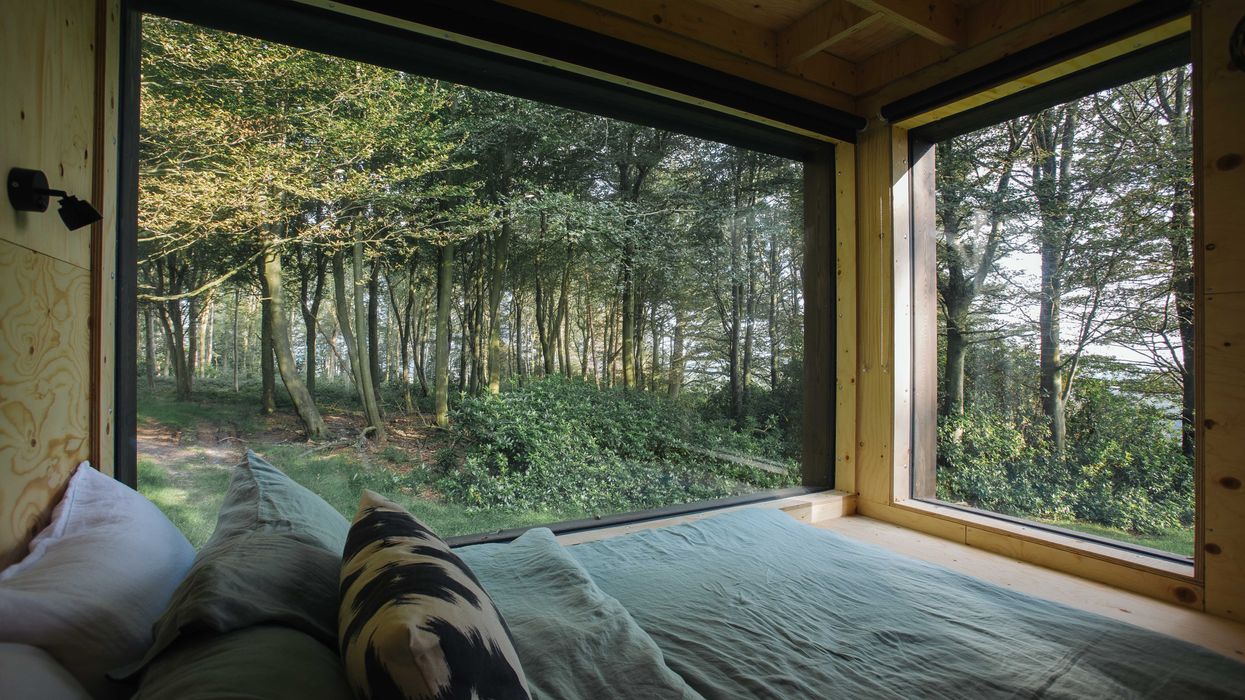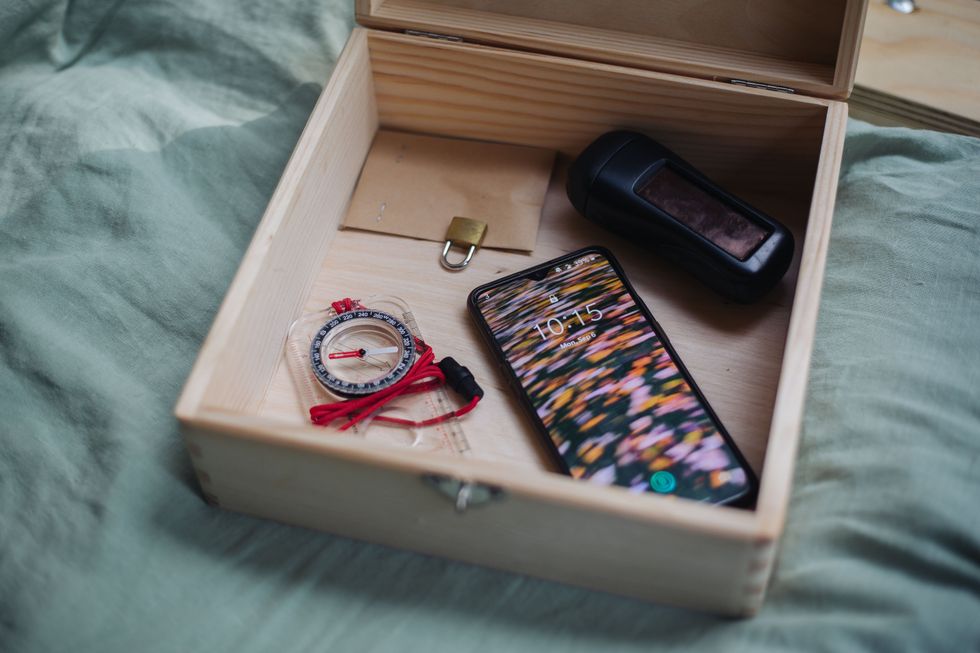Catherine Shuttleworth
Jan 20, 2024

Pasco Photography
One of my least favourite notifications used to be my screen time usage. I would get it at the beginning of the week and it would almost always tell me that my usage had increased.
As 2023 was coming to an end I was beginning to think of resolutions for the New Year, and the most pressing one appeared to be lowering my screen time. I couldn't believe how much of my day was being consumed on my phone - no wonder I felt as though I had no time during the day.
With an average daily usage of eight hours, I knew I would need to do something big to kickstart this change, so what did I do you ask? I went to a cabin in the countryside and locked my phone in a box for 72 hours.
Yes, you read that correctly. Turns out I'm not the only one with a screen time problem, which is why co-founders Hector and Ben started Unplugged, a company with digital detox escapes all over the UK to help breakup the relationship between busy people and their phones.
So off I went to West Sussex with the aim of locking my phone in a box and finding myself in a cozy cabin.
After locking my phone away, I wandered around the cabin for a few minutes, adjusting to being without my phone. I thought to myself that normally I would be taking pictures to post on Instagram. I found the Nokia Brick they give guests incase you need to get hold of people, and took an embarrassingly long time to figure out how to turn it on. But I got there in the end.

My first day was mostly spent getting used to this new way of life. Not having a smartphone to reach to I read some books I had brought with me, as well as listening to the radio and playing some games found in the cabin.
The first morning was certainly the strangest, seeing as the first thing I do when I wake up is grab my phone and check my social media. So when I woke up I wasn't entirely sure what to do with myself.
Eventually though, I began to get the hang of not having a phone. I started to not crave it, I wasn't missing social media, I was enjoying listening to the radio and playing solitaire at the table, as well as making a dent in my reading list.
I went for walks in the surrounding woodlands, learning to take in nature rather than having my headphones in. I was more in touch with my creative side, and more in touch with myself in general. I was no longer feeling stressed about what I was missing out on social media like I had previously felt on the first day. If I was stressing out about anything, it was my return to social media after leaving the cabin. I felt no desire to do so.
After returning from trip I was eager to learn the reasoning behind Unplugged and the evidence of its methods, so I spoke to co-founder Hector Hughes to find out more about how Unplugged came to be.
"[Unplugged] was born out of my own dissatisfaction with life. I was working at a tech start-up with Ben, and although it was very exciting, we were just living the busy London life. I was always busy and my phone was such a big part of that," Hector tells me. "I just got really burnt out with it all and went to this silent retreat in the Himalayas in 2019. And the best thing about it was that when you arrive they take your phone off you.
"I came back from that and had a chat with Ben about how there's a lot of stigma around retreats and meditation, but so much of the benefits come from going offline and getting into nature. And then Unplugged came from there."
Speaking on the benefits of going to one of Unplugged's cabins, Hector told me that within 15 minutes of waking up "83 per cent of us have checked our phones. And then for the rest of the day you're in a state of distraction and overstimulation, allowing everything in. And the truth is we're not built for this level of overstimulation."
"So when you Unplug, it allows you to de-stimulate, and get back to this state of calm that humans are built off of."
All Unplugged stays are three nights long, and I was curious to know the reasoning behind this decision.
"There's something called the '72 hour effect'," Hector explains. "It takes 72 hours in nature to properly switch off. We want to give people the space to actually have a change in environment for long enough that they notice the change."
"I know that if we didn't have a three night minimum, everyone would only stay for one or two [nights], because it's easier!"
After leaving my cabin, I was committed to implementing change into my everyday life to stay away from my phone as much as I can. So I asked Hector for any tips about how to integrate the ethos of Unplugged into my day-to-day.
"The biggest tip I can give is just getting little analogue tools. For example, if your phone is your alarm clock, there's already a massive temptation to go on your phone first thing in the morning. So buy an alarm clock, or swap out your smart watch for a regular watch. It's just about designing your life so you're not so reliant on your phone."
Before we finished up our conversation, I wanted to see if Hector was following the Unplugged lifestyle as well as he seemed, so I asked him for his screen time.
He showed me his phone to see an incredible 15 minutes of daily usage on average.
If you're wondering how my screen time is post-cabin, I am happy to say I have gone from eight hours a day to three! Nowhere near as impressive as Hector's 15 minutes, but give me some time and we will see.
If you want to reduce your screen time too, you can check out the range of cabins offered by Unplugged.
Sign upto our free Indy100 weekly newsletter
Have your say in our news democracy. Click the upvote icon at the top of the page to help raise this article through the indy100 rankings.
How to join the indy100's free WhatsApp channel
Top 100
The Conversation (0)













